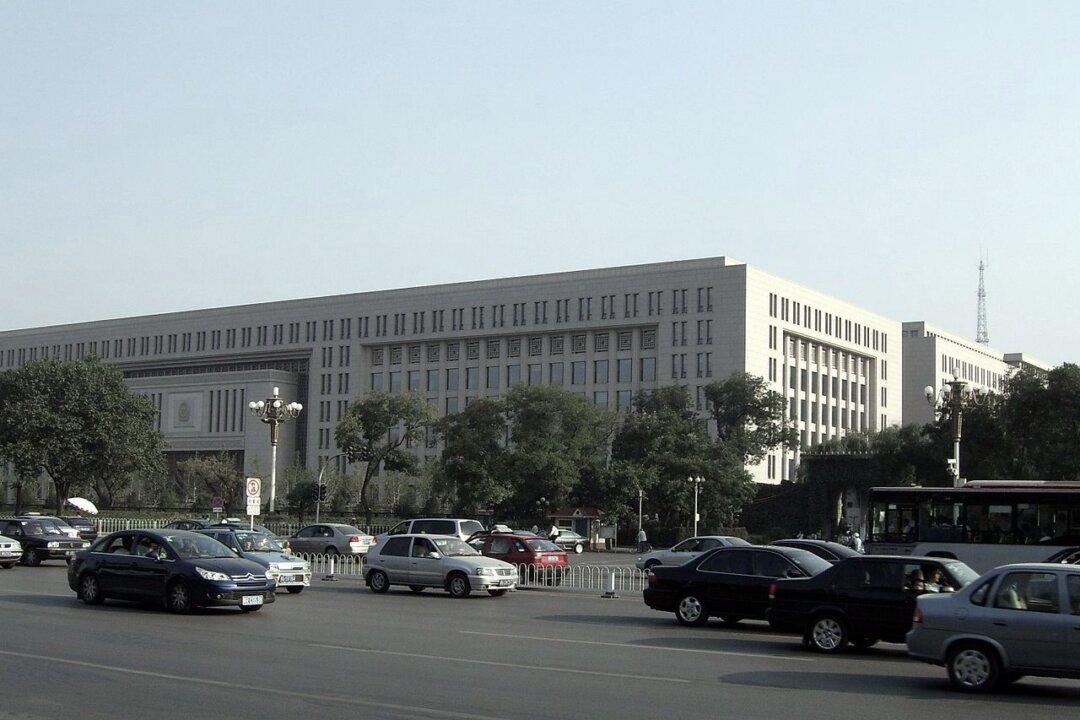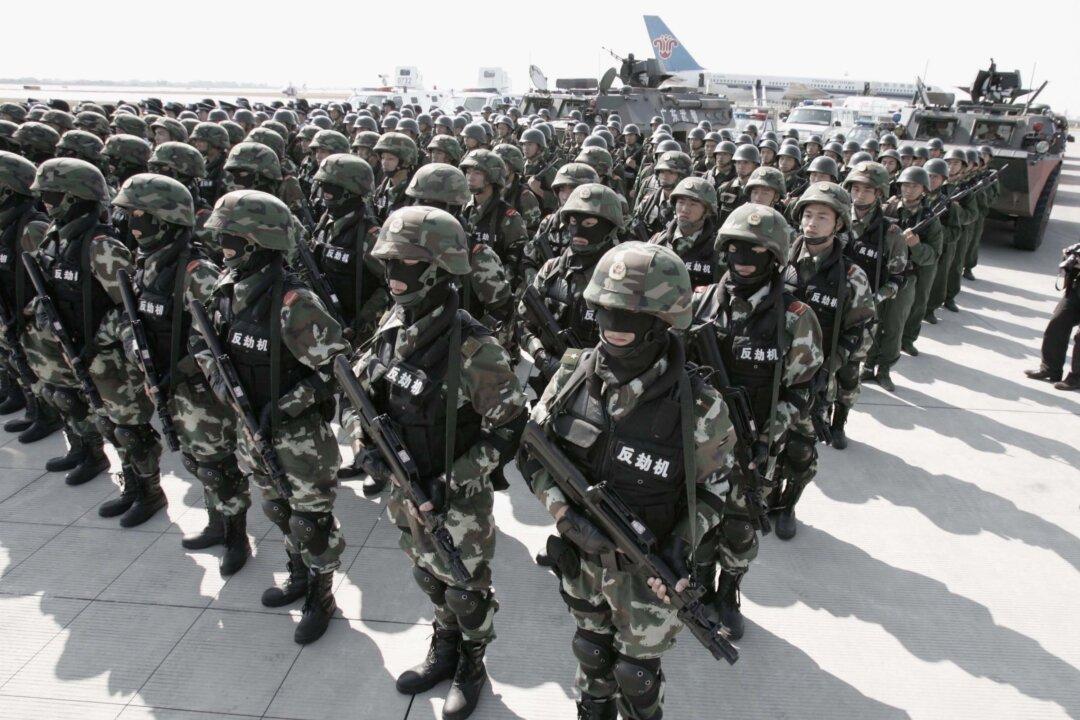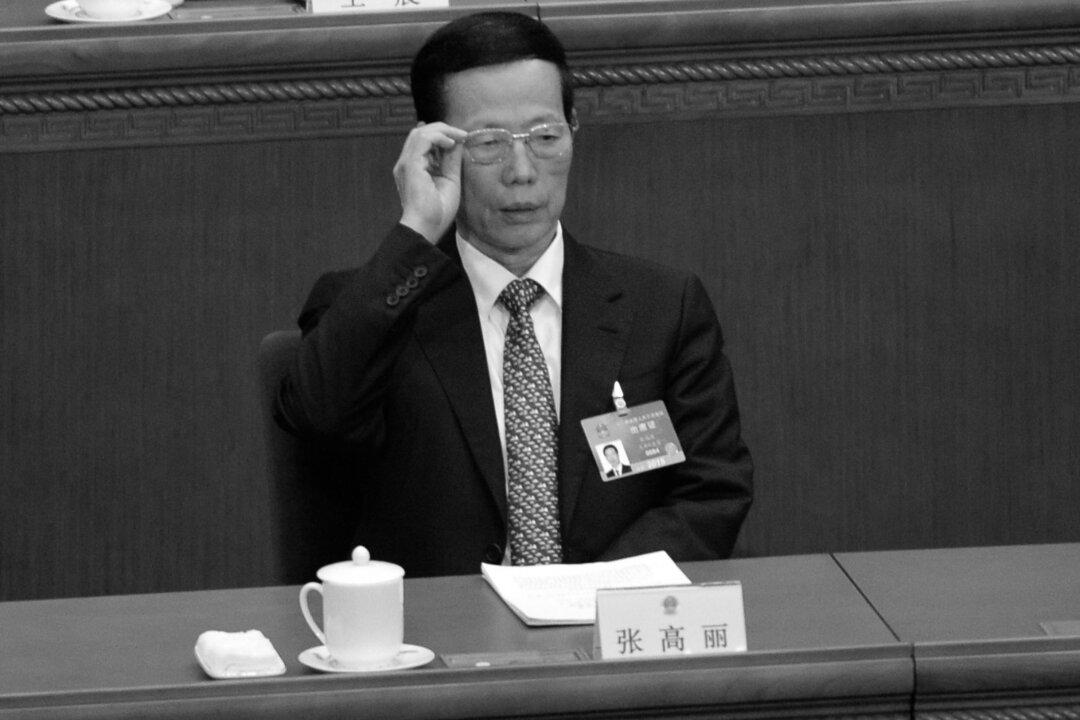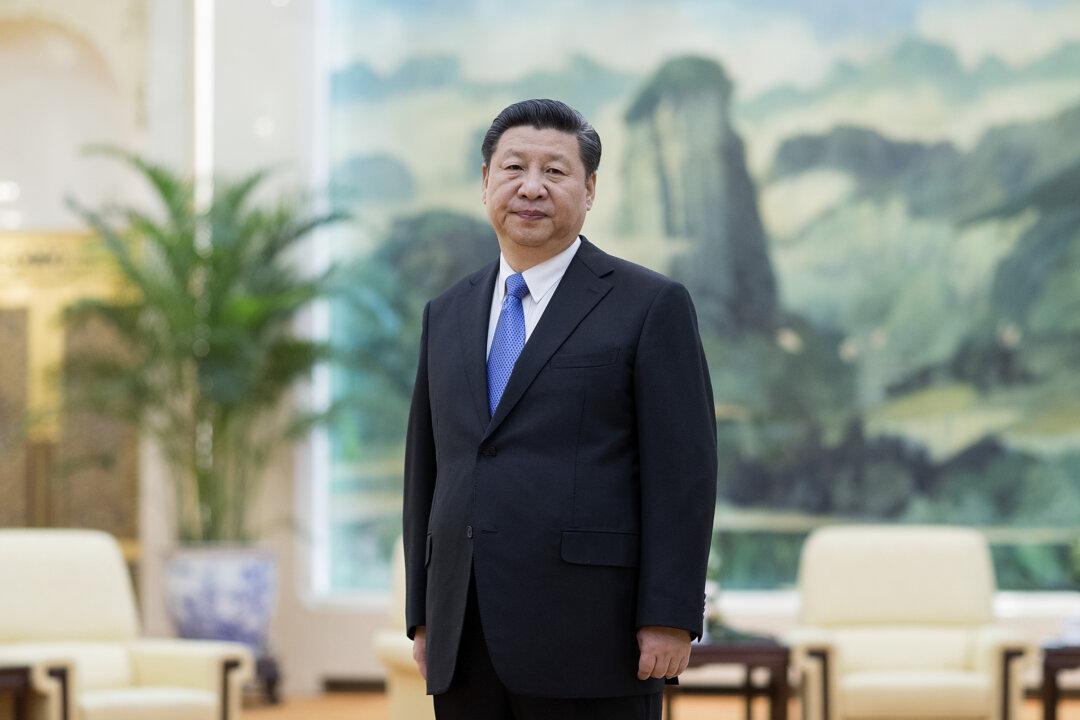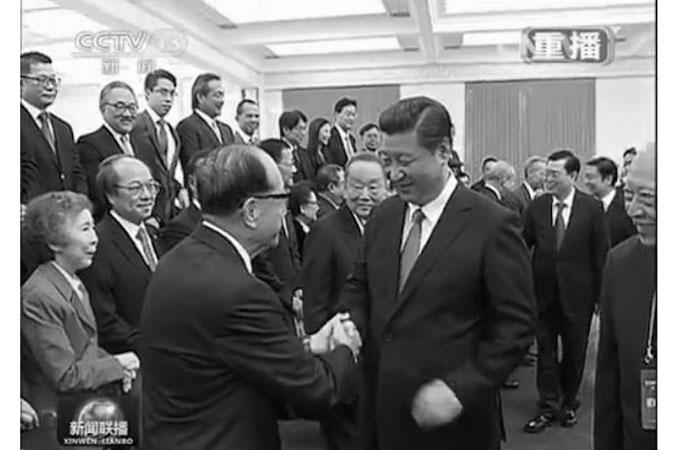Chinese leader Xi Jinping is preparing to remove security officials who are resisting his policies, among a series of other changes to the political and legal apparatus, according to a high-level source in the Chinese regime’s Ministry of Public Security.
The source, who is familiar with discussions on the matter, says that Xi will soon roll out an anti-corruption office within the Ministry with the express purpose of dealing with disloyal officials.
Also, according to the source, investigations were recently opened against a high-ranking security official.
The source added that Xi will respond to what he considers efforts by the security apparatus to undermine him with a gesture of “goodwill” after this Chinese New Year.
It is unclear precisely what operational changes Xi’s enhanced control and oversight into the security apparatus would bring.
The regime’s political and legal apparatus has long been used by the regime as a tool of repression. Under the leadership of Xi, however, the state of repression has vacillated between extremes. On the one hand, the labor camp system has been formally shut, while on the other, there has been a severe crackdown on Chinese human rights lawyers using often brutal and extralegal measures.
Whether enhanced central political control over the security forces, as indicated by the measures outlined by the source, would seek merely to ensure that ordinary Chinese without political inclinations are not victimized, or also extend fairer treatment to those who wish to work within the law for change, is unclear.
‘Anti-corruption Office’
Xi Jinping is presently setting up an anti-corruption office inside the Ministry of Public Security, the state agency that oversees police and security forces in the Chinese regime, according to the source. This office is expected to be in operation at the earliest by the regime’s annual parliamentary meetings, or “Two Sessions,” in March. A person very close to Xi is expected to be involved in the office.
The anti-corruption office isn’t the current anti-corruption group inside the Ministry, the source stresses. The anti-corruption group, which was established in January 2016, reports to the Chinese Communist Party’s top anti-corruption agency, and is headed by Xi loyalist Deng Weiping.
The office, which will be tasked with purging the Ministry of elements who oppose Xi’s security and legal policies, has already faced stiff resistance, the source said. A handful of deputy bureau chiefs have already been transferred out of the Ministry for showing recalcitrance.
Li Tianxiao, a senior political commentator with New Tang Dynasty Television (NTD), believes that Xi Jinping has reason and need to establish a new anti-corruption office in the Ministry if he is to tackle a law and security apparatus that refuses to heed his call for restrained law enforcement or issue fair judgements. NTD is a sister media of this newspaper.
Li said that the security apparatus has been pushing back against Xi ever since the high-profile death of Lei Yang in 2016.
Lei, a Chinese environmentalist, was suddenly arrested by the police when he was on his way to the airport. He died mysteriously while in police custody. The police claimed that Lei was arrested as part of an anti-prostitution bust, a thin excuse that failed to convince Lei’s family, a wide circle of friends and fellow alumni, or observers.
After a large public outcry over Lei Yang’s death, Xi appeared to publicly weigh in on behalf of Lei, according to the reading of Wu Qiang, a researcher of social movements in China. Although two of the five Beijing policemen involved in the incident were later arrested, none were made to stand trial. Lei Yang’s death and the court’s decision particularly enraged middle-class Chinese, many of whom identified with Lei, the graduate of a reputable university with a job in a government-linked environmental group; typical cases of judicial injustice involve blue collar workers or dissidents.
Li Tianxiao said that if Xi does not carry out “surgical operations” to the Ministry of Public Security, he risks losing the Chinese people’s support.
Xi’s popularity inside China is due to his anti-corruption campaign, which has thus far appeared to be a genuine effort to stem endemic corruption in the regime, as well as serve to purge political rivals and police the loyalties of Party cadres.
‘Top Security Official Investigated’
The source said that a high-ranking official in the Ministry of Public Security was put under investigation around a key annual conclave of the anti-corruption agency in early January, though declined to provide specifics.
An examination of official Chinese reports, however, seems to indicate that Fu Zhenghua, the executive deputy minister of public security, is the man in trouble.
In the coded world of the Chinese regime, the frequency of public appearances is one way in which to gauge a Chinese official’s political standing. Fu and Li Wei, a lower ranking deputy minister of public security, were both absent from a key Ministry meeting on Jan. 9 where the important takeaways from the anti-corruption agency’s annual conclave were disseminated.
Also, Fu has only participated in two official events since joining the Ministry as its number two official in May 2016, according to the Ministry’s activity reports. In contrast, other officials who transferred to the Ministry in the same month as Fu have been substantially more active: Huang Ming, the Ministry’s number three, made 28 appearances, while Wang Xiaohong, the ninth ranking official, made 15.
Fu Zhenghua and Li Wei, however, did attend another Ministry meeting on Jan. 14, and Fu gave the customary concluding remarks, according to the Ministry’s official report of the meeting. But officials that are being investigated for corruption have been known to go on public jaunts before an official denouncement is issued, as in the case of the purged security czar Zhou Yongkang.
Fu was a known crony of Zhou, but reportedly switched camps after Xi Jinping went after Zhou, one of the leading allies of Jiang Zemin. Jiang helms a powerful political faction that opposes Xi’s leadership. It is unclear if Xi recognizes Fu’s new allegiance.
Xi has been gradually reducing the prominence of the regime’s political and security apparatus since taking office in 2012, very likely to remove Zhou Yongkang’s remaining influence.
The head of the Political and Legal Affairs Commission—Zhou’s old office—no longer has a seat on the Politburo Standing Committee, the top decision making body in the regime. To date, at least 19 serving and former elites of the legal and security apparatus have been investigated for corruption.
But Xi has yet to consolidate control over the apparatus. Luo Yu, a Chinese defector and son of founding public security head Luo Ruiqing, told Epoch Times in an earlier interview that injustices continue in China because the regime has in place “Zhou Yongkang’s security system without Zhou Yongkang in it.”
Xi Jinping is planning to respond to the pushback from the regime’s legal and security apparatus and show that he is sincere about his policies by releasing some “people of faith” after this Chinese New Year on January 29, according to the source. The identity of those proposed to be released was not clarified.
